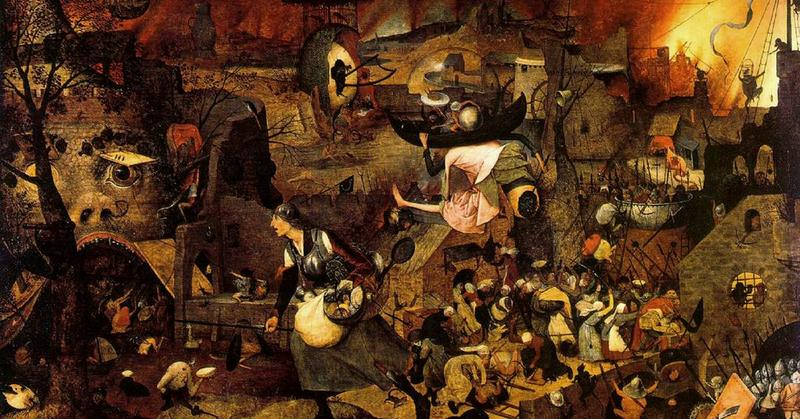Positives Of The Black Plague: Power In Society Was Given To The Young
By | April 13, 2020
The explosion of the Black Death in the 14th century completely devastated the Earth's population. Between 75 million and 200 million people died, eliminating 30–50% of the population of Europe. However, the Plague didn't kill equally. Many of the people who succumbed the Plague were older and weaker, giving the young (and often lower class) a chance to lead Europe once the Plague dissipated. Art, local government, and even the clergy underwent a major demographic change, thanks to young people picking up the pieces of a world that fell apart.
That doesn't mean, of course, that everything got better because the world got younger. In some instances, these new leaders were terrible at their jobs. As the wheel of time turned, however, life evened out, and the world netted some positive change.

People Lived Longer
The greatest change that followed the devastation of the Plague was an increase in lifespan. In 2014, researchers at the University of South Carolina analyzed the bones buried in a London cemetery in the 14th century and concluded that around 10% of people lived past the age of 70. Following the Plague, however, the number of people who reached that age more than doubled. There are a few—fairly grim—reasons for this, such as a "survival of the fittest" scenario in which the Plague killed off the weakest members of society and the greater availability of resources to the survivors. As cruel as it may sound, with better food and fewer people, the youth of the 14th century were primed to change the world.

More Sex
Faced with the realities of death on a day-to-day basis, the Plague era and the period immediately following it saw young people became more sexually liberated despite the odd set of rules that governed society at the time. Near the end of the 14th century, young apprentices were expected to sign behavioral contracts promising not to gamble, steal, marry, or even have sex for up to seven years. If they were caught breaking these terms, the time they were required to serve as apprentices would be doubled.
But asking young people who'd just survived the most horrific event in recent memory to refrain from sex is like asking the Sun not to shine. Following the Black Plague, young apprentices earned a reputation for going to taverns and getting up to no good. Most of the young people who went out and had a good time kept to themselves about it, but around the same time, people began publicly shaming one another for acting improper.

The Clueless Clergy
Out of everyone affected by the Plague, the Church was hit especially hard. Monasteries maintained an open door policy for the sick, which left priests vulnerable to infection and thus led to a shortage of clergy members. On top of their dwindling numbers, the Church was suffering from a mass loss of faith. People questioned what kind of god would allow for a such devastation, they were wary after recent papal scandals, and they generally had bigger fish to fry.
To make matters worse, the young men who stepped up and donned the cloth weren't ready for their responsibilities, not necessarily because they were young but because there wasn't time to train them. The training period for a young priest was accelerated, so many of these new priests struggled to handle their day-to-day duties. On the bright side, the loss of older members of the clergy led to more opportunities for savvy young priests and laywomen to fill service roles inside local parishes.

A Majorly Metal Renaissance
If the Black Plague hadn't come along and wiped out an entire generation of artists, it's likely that the art of the day would have continued down the Gothic fresco route for longer than it did. However, after witnessing death en masse, European culture took a morbid and pessimistic turn. The surreal depiction of death choosing its victims at random in The Dance of Death by Michael Wolgemut, seen above, is typical of the period's art.
Similarly, architects became particularly inspired. Realism took over in Europe, with English architects leaning into the Gothic style by adding more medieval flourishes, while young Italian architects looked to their elders and began designing buildings with the heightened expressionism of the Greco-Roman style.

Working Conditions Improved
Before the Plague, serfs and other lower class people were at the mercy of landowners. With a lot of workers and not a lot of work to go around, no one was making any money, and everyone was miserable. After the Plague thinned out the population, however, survivors immediately benefited from the massive labor shortage, demanding better working conditions and higher wages. With no one else to hire, the lords of the land were forced to either meet them at the negotiating table or let their fields rot. These actions paved the way for better working conditions for centuries, even empowering the peasants to revolt whenever lords attempted to return to their pre-Plague ways.

